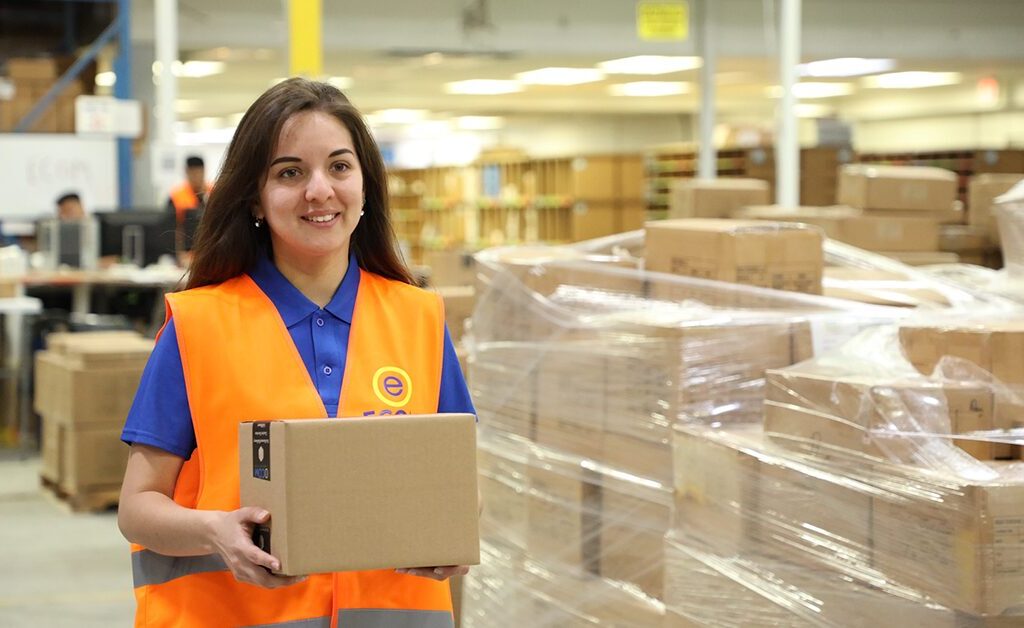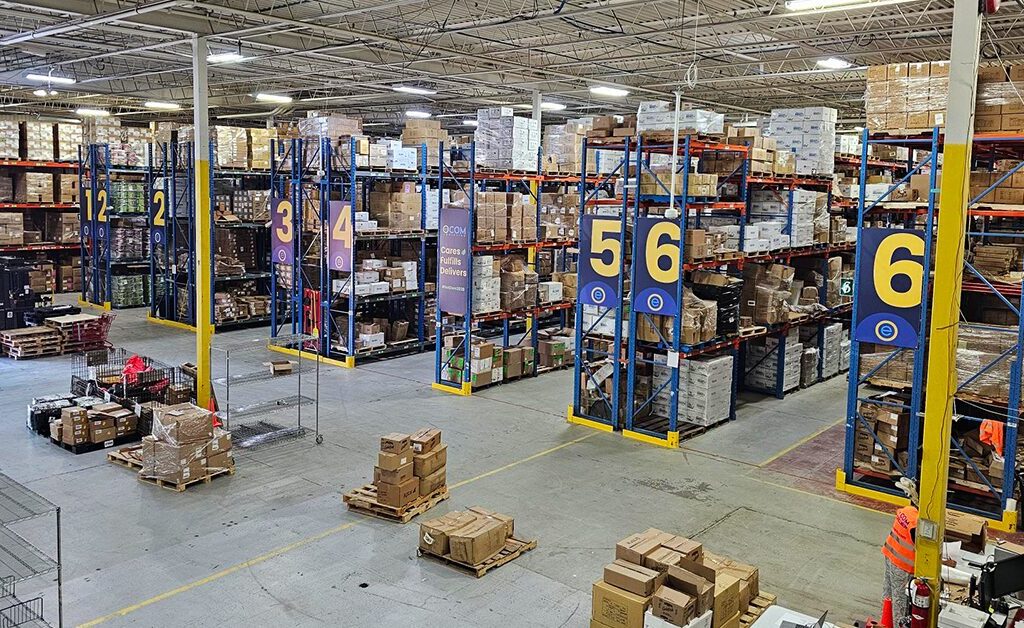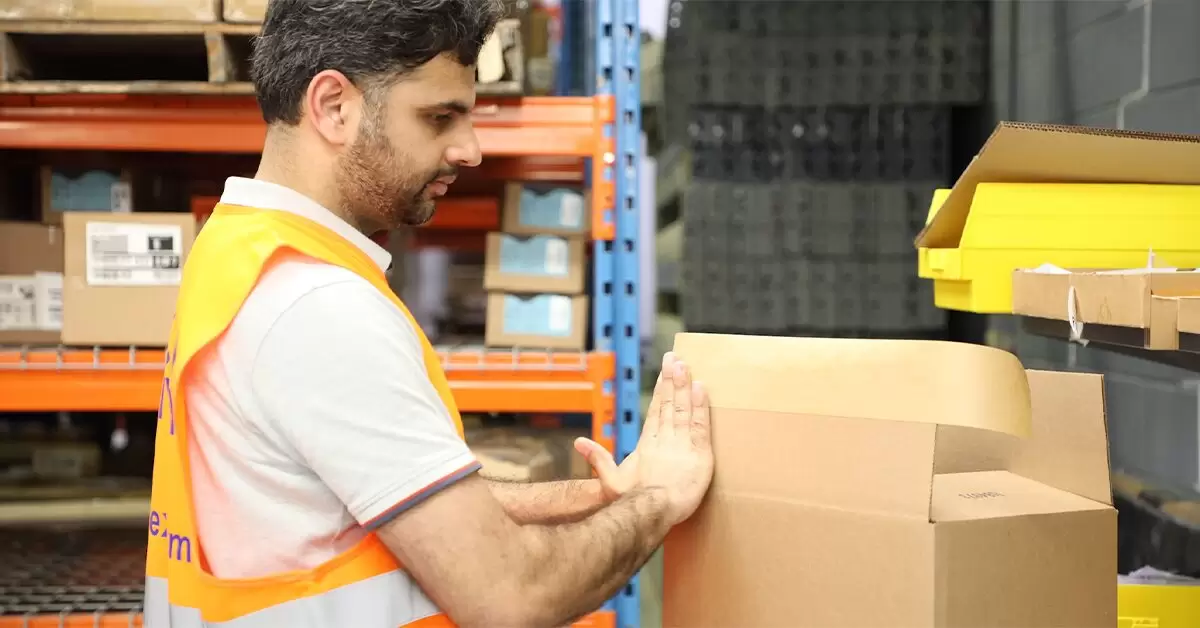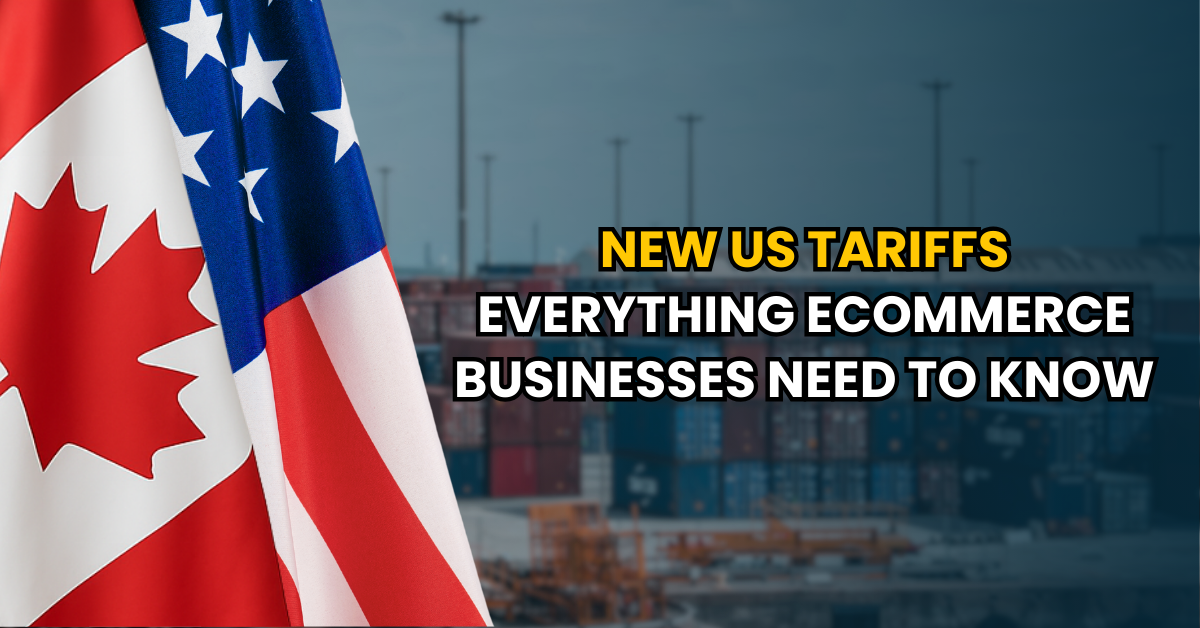Online shopping has become more popular in recent years due to the ease and convenience it offers. Digital platforms and changing consumer preferences are driving this shift.
It’s never been easier for shoppers to get the products they want, when and how they want them. But the demand for convenience comes at a cost. By 2030, emissions could reach 25 million CO2 metric tons. It is crucial for businesses and consumers to work together to reduce their carbon footprint.
As the environmental impact of traditional ecommerce practices becomes more evident, consumer awareness of sustainability is increasing, and businesses are taking notice. In one study, 60% of participants said that 100% carbon neutral delivery was their top choice of delivery options.
With the rise of the eco–conscious consumer, sustainability initiatives are gaining momentum. Savvy businesses are tuning into customer expectations around sustainable business practices, including those related to logistics. As such, they’re adopting initiatives focused on enhancing their sustainability profile.
These initiatives span everything from selling eco-conscious products to adopting sustainable fulfillment and shipping practices. It’s a shift that not only helps protect the planet but also builds customer trust and loyalty.
In this article, we look at eco-friendly practices for ecommerce businesses to use for sustainable fulfillment. By doing this, you can save money, build trust with customers, and stand out from competitors.
1. Optimizing Packaging
One of the most significant contributors to waste in ecommerce logistics is packaging. In 2019, plastic packaging waste from ecommerce alone was estimated at a staggering one billion kilograms.
Here are some strategies to minimize the environmental impact of your ecommerce packaging:
- Use Eco-Friendly Packaging: Use recycled and recyclable materials for packaging.
- Minimize Packaging: Reduce the amount of packaging used per order. You can achieve this by right-sizing boxes to fit products snugly, which also reduces your shipping costs.
- Choose Biodegradable Options: Consider using biodegradable or compostable packaging materials. These options break down naturally over time without leaving harmful residues behind.
2. Efficient Shipping Practices
Shipping is another area where ecommerce businesses can make a significant environmental impact. By using efficient shipping practices, you can lower your carbon emissions and energy use.
There are many ways to improve your shipping strategy for better efficiency and sustainability:
- Route Optimization: Improve delivery routes by working with carriers who use advanced software to save fuel and reduce emissions.
- Eco-Friendly Shipping Partners: Deliver using electric vehicles or other green technologies to prioritize sustainability.
- Consolidated Shipping: Encourage customers to combine their purchases to reduce the number of trips needed for delivery.

3. Sustainable Warehousing
Sustainable warehousing involves adopting practices that reduce energy consumption and minimize waste within fulfillment centers.
To make your supply chain more sustainable, you can follow these steps in your warehouse. You can also choose to work with a 3PL that prioritizes sustainability and implements eco-friendly practices.
- Energy-Efficient Lighting and Equipment: Replacing traditional lighting with LED lights and using energy-efficient equipment to reduce electricity consumption.
- Solar Power: Installing solar panels on warehouse roofs to generate renewable energy on-site.
- Waste Reduction Programs: Setting up recycling and composting programs within the warehouse to minimize waste.

4. Returns Management
Ecommerce returns contribute significantly to global waste because stores usually do not resell them. That’s because repacking often results in extra costs for retailers—but the environmental cost is huge. In 2022, over 4 billion tons of returned items were discarded in the US alone. This resulted in 24 million metric tons of CO2 emissions from transportation.
Handling returns sustainably can greatly reduce waste and environmental impact. Here are some strategies you can adopt to mitigate this challenge:
- Streamlined Return Policies: Create clear, easy-to-follow return policies that encourage customers to return items only when necessary.
- Refurbishing and Reselling: Refurbish returned items for resale rather than discarding them. This not only reduces waste but also recovers value from the returned products.
- Donation Programs: Partner with charitable organizations to donate returns that you cannot resell.
5. Customer Engagement
Using green practices in packaging, shipping, warehousing, and returns is important. Educating and involving customers in sustainability efforts can enhance the impact of your eco-friendly actions and also establish your business as a leader in sustainable ecommerce.
- Sustainability Messaging: Highlight your company’s sustainability efforts in marketing materials, on your website, and through social media. Showing your dedication to the environment not only attracts eco-friendly customers but also grows your customer base.
- Incentivize Eco-Friendly Choices: Encourage shoppers to make eco-friendly choices by offering rewards. These rewards can include discounts for selecting carbon-neutral shipping or reusable packaging. You can also reward your customers for their choices through discounts, extra loyalty points, or credit that they can use toward their next purchase.
- Feedback Loops: Create channels for customers to provide feedback on your sustainability practices, helping you continuously improve.
Conclusion
Sustainable ecommerce fulfillment is not just a trend. It’s a necessity! Although it doesn’t eliminate the environmental impact of mass consumption, it can certainly reduce environmental harm. By following these practices, your online store can become more sustainable. This will attract eco-friendly shoppers and help in the fight against climate change on a global level.
From optimizing packaging and shipping to sustainable warehousing, every step towards sustainability counts. As the industry changes, it’s important to keep using environmentally-friendly practices for both success and a better planet.
If you want to start your sustainability journey, Ecom Logistics can help you quickly achieve your goals. Contact us today to see how we can support your business in turning intention into action!




